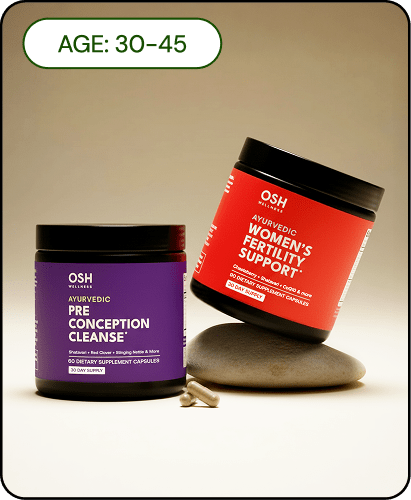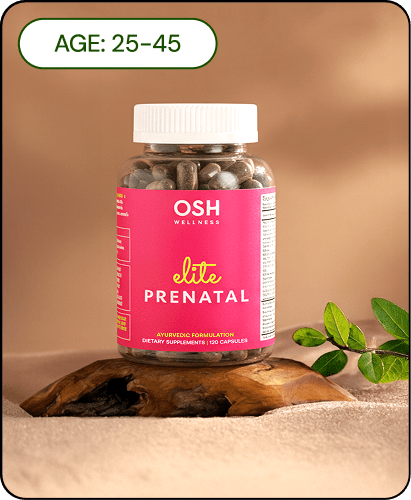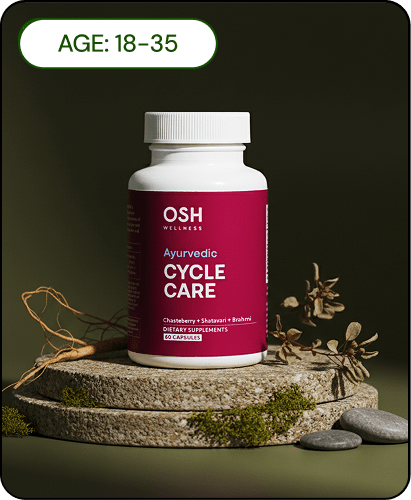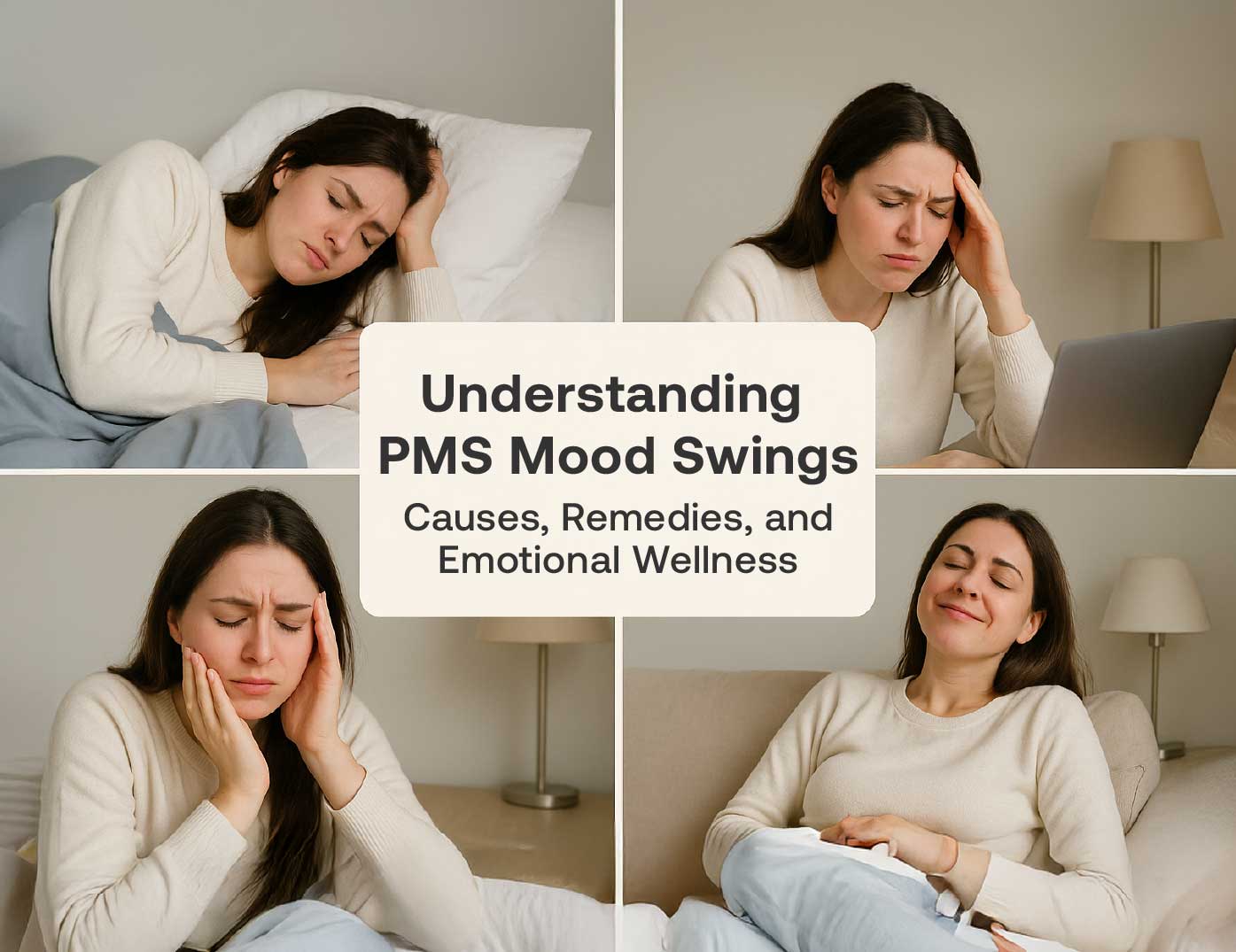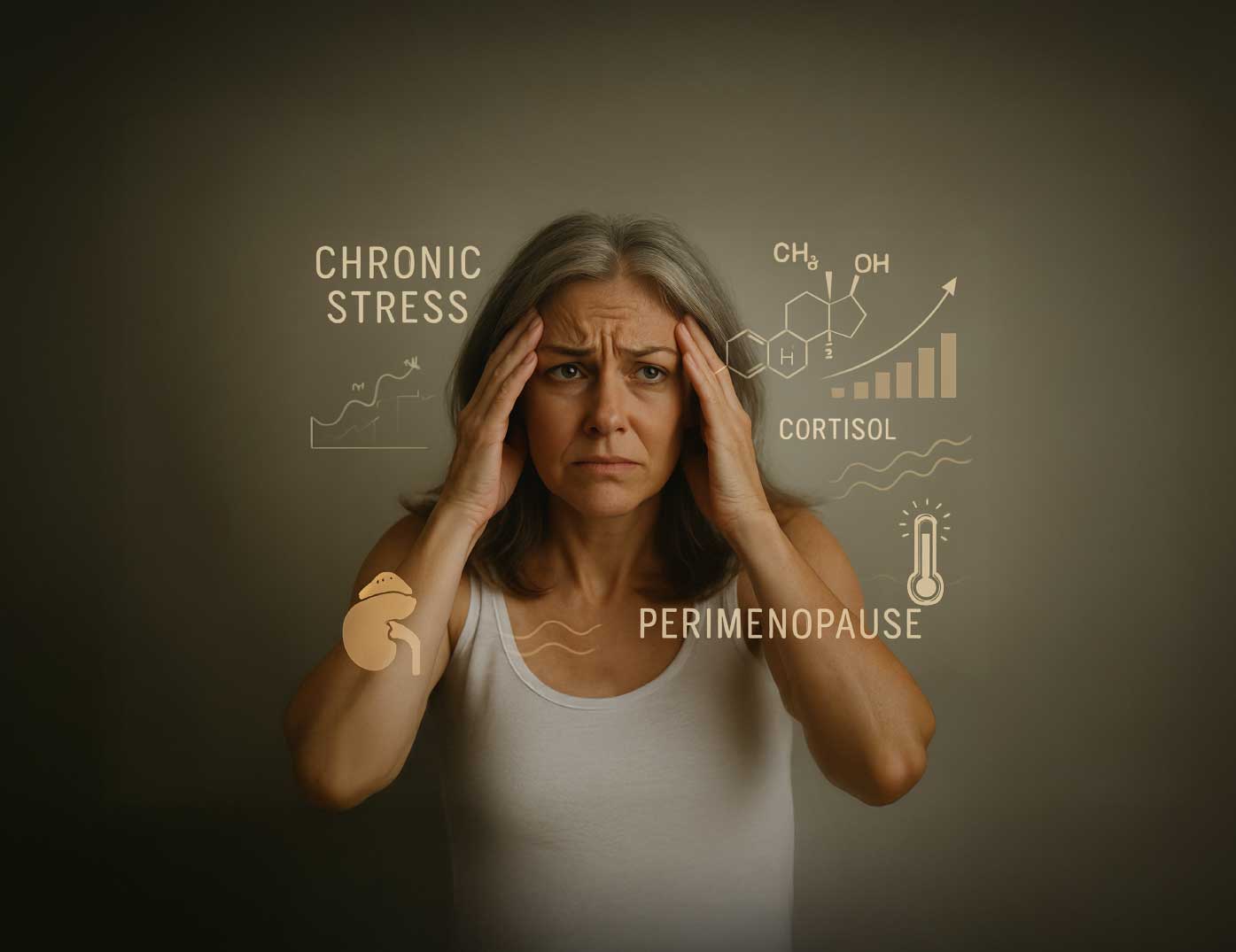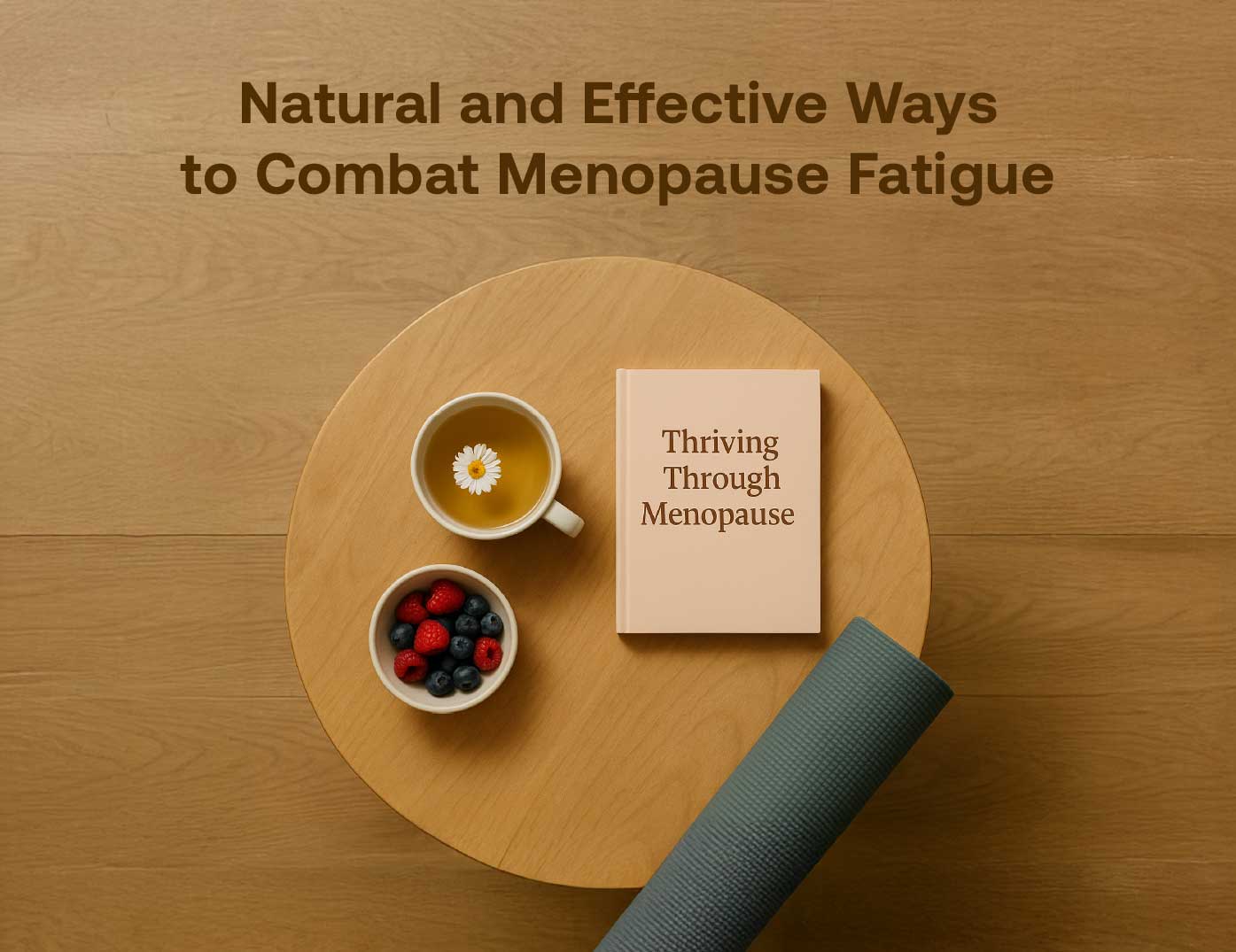Table of contents
PMS mood swings affect many individuals who menstruate, with hormonal fluctuations playing a pivotal role. These mood changes, influenced by variations in estrogen and progesterone, can result in irritability, anxiety, and sadness. In this article, we explore the underlying causes of PMS mood swings and offer effective coping strategies, focusing on holistic approaches and natural alternatives preferred by young women aged 20–35. Understanding and managing these emotional fluctuations can significantly enhance well-being and improve quality of life.
Background and Context

Understanding premenstrual syndrome (PMS) and mood disorders requires a nuanced appreciation of their historical development and biological mechanisms. Initially recognized in the 1930s, PMS was often viewed through cultural and medical lenses that perpetuated stereotypes about women's mental health, frequently dismissing symptoms as irrational behavior during certain menstrual phases [1]. Over the years, scientific understanding has matured considerably.
Biologically, PMS and its more intense form, premenstrual dysphoric disorder (PMDD), stem from cyclical hormonal changes. Estrogen and progesterone levels vary throughout the menstrual cycle, particularly during the luteal phase (post-ovulation to menstruation) [2]. These fluctuations influence the hypothalamic-pituitary-gonadal (HPG) axis and, in some cases, the hypothalamic-pituitary-adrenal (HPA) axis [3], both of which are crucial for mood regulation.
Additionally, serotonin, a neurotransmitter fundamental to emotional balance, is heavily impacted by these hormonal changes. Research shows that individuals with PMDD may experience serotonergic dysregulation that aligns with their menstrual cycle [4]. Alarmingly, around 77% of those with PMDD also report a history of major depressive disorder, versus only 17% of control participants [5]. This correlation underlines the close relationship between hormonal shifts and neurotransmitter activity in contributing to emotional instability.
Understanding PMS Mood Swings

Mood swings linked to PMS are a common and often distressing experience for menstruating individuals. The most pronounced emotional disruptions tend to occur during the luteal phase, just before menstruation.
Hormonal variance: Estrogen and progesterone levels change drastically, influencing neurotransmitter activity [6].
Serotonin impact: These hormones can reduce serotonin levels, deepening feelings of sadness, irritability, or anxiety [7].
Individual sensitivity to these hormonal changes varies significantly, explaining why some experience intense mood episodes while others have mild or no symptoms. Approximately 75% of women experience PMS to some degree, while 3% to 8% suffer from PMDD, which includes more severe emotional disturbances [8].
Holistic Approaches to Managing PMS Mood Swings

Holistic strategies aim at addressing the mind-body connection and can be highly effective in managing PMS-related mood disturbances. These strategies include:
Regular aerobic exercise: Enhances endorphin levels and reduces cortisol, helping stabilize mood. Physically active individuals often report less emotional distress during their cycle [9].
Nutritious, balanced diet: Consuming whole foods, complex carbs, and healthy fats helps regulate blood sugar and mood. Nutrients such as magnesium, vitamin B6, and omega-3s are particularly beneficial [10].
Sleep hygiene: Following a steady sleep routine, avoiding blue light at night, and creating a calming environment improves emotional resilience [11].
Mindfulness and stress reduction practices: Practicing yoga, deep breathing, or meditation can dramatically reduce PMS-related anxiety [12].
Building a strong support network of friends, family, or therapists can also add emotional stability during PMS episodes. When feelings become overwhelming, shared experiences and validation offer both insight and comfort.
Emotional Self-Care Strategies

Emotional self-care is a vital part of PMS mood swing management. Acknowledging these emotional shifts as biological and not character flaws is step one toward empowerment.
Mood tracking: Keeping a diary of emotions across your menstrual cycle can help you recognize vulnerable periods. This awareness enables proactive planning of calming activities [13].
Mindfulness techniques: Deep breathing, meditation, or journaling can manage stress responses and improve cognition under emotional strain [14].
Positive social connections: Confiding in trusted individuals or seeking professional support can ease emotional burdens and offer healthy coping mechanisms [15].
Self-care toolkits: Include calming elements such as herbal teas, essential oils, or favorite books to foster comfort during emotional lows [16].
Boundaries and scheduled downtime during predictable PMS phases are essential for sustained emotional health. These grounding routines enable menstruating individuals to protect energy and improve self-worth amidst recurring mood changes.
Future Perspectives on PMS and Mental Health

Scientific research is actively redefining PMS and PMDD treatment. One key area involves neurosteroids like allopregnanolone and their interaction with GABA receptors. These biochemical processes are increasingly being targeted in emerging treatments such as:
SSRIs and neurosteroids: These medications show promise in correcting serotonergic imbalances and alleviating emotional symptoms [17].
Personalized medicine approaches: Future treatments may include customized regimens combining lifestyle adjustments with hormonal or pharmaceutical interventions [18].
Open-label placebos: Surprisingly effective, these treatments maintain transparency while offering real symptom relief without significant side effects [19].
Comprehensive care models are becoming more inclusive, emphasizing that PMS affects not only individuals but also their families and professional lives. Strong support systems and societal understanding are critical to mental health during these cycles [20].
Relevant Products
For those seeking support, consider trying Osh Wellness Cycle Care. This natural supplement is designed to balance hormones and alleviate PMS-related mood swings. With thoughtfully selected ingredients, it serves as an excellent addition to a broader wellness routine aimed at restoring emotional equilibrium.
Conclusions

In summary, PMS mood swings are rooted in complex biological and neurochemical processes, often exacerbated by environmental stressors. Through holistic lifestyle interventions, emotional self-care, and emerging medical treatments, individuals can manage symptoms effectively. Empowering menstruators with knowledge and personalized strategies is not only vital for improving mood but also promotes long-term emotional wellness and personal agency.
FAQs
What are the common signs of PMS mood swings?
Irritability, sadness, anxiety, and fatigue are frequent symptoms tied to hormonal fluctuations.
Hormonal changes during PMS: how do they affect mood?
Shifts in estrogen and progesterone levels affect neurotransmitters such as serotonin, directly impacting emotional stability.
When should I consider medical treatment for my PMS symptoms?
If mood swings significantly impair daily function or resemble depression or anxiety, professional help is recommended.
How do lifestyle changes influence PMS mood swings?
Nutrition, regular exercise, and stress management can significantly curb symptom intensity and frequency.
What natural remedies can help manage PMS mood swings?
Supplements like magnesium, B6, omega-3s, and herbal supports can offer symptom relief alongside holistic care approaches.
Sources
1: NCBI - Historical Perspectives of PMS and Mood Disorders
2: NCBI - Hormonal Fluctuations and Mood Disorders
3: PubMed - Biological Mechanisms in PMS
4: Psychiatrist - Mood Disorder and Personality Assessment in PMS
5: Women’s Mental Health - Etiology of Premenstrual Dysphoric Disorder
6: Johns Hopkins Medicine - Premenstrual Dysphoric Disorder (PMDD)
7: NCBI - Premenstrual Syndrome
8: Mayo Clinic - Premenstrual Syndrome
9: The Holistic Health Approach - Understanding PMS
10: Dr. Amersi - Holistic Treatment for PMS
11: Healthline - PMDD Natural Treatment
12: Dr. Jenna Rayachoti - Natural Support for PMS
13: Flo Health - PMS Mood Swings: Why They Happen and How to Ease the Symptoms
14: Calm - Menstrual Cycle and Mental Health
16: Riviamind - PMDD and Self-Care Strategies
17: Frontiers in Psychiatry - Neurosteroids in PMS
18: BMJ Evidence-Based Medicine - Emerging Trends in PMS Treatment
19: Medical Xpress - New Research in PMS Treatment
20: Durham University - The Impact of PMDD on Relationships


